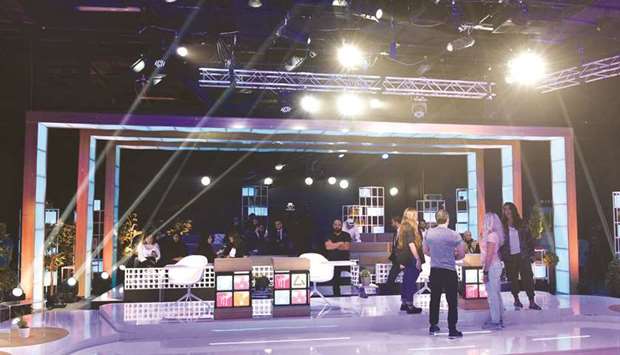With Covid-19 continuing to affect the entire world, the team behind Qatar Foundation’s Stars of Science has had to work hard to bring this season to life.
“The Stars of Science team has to make critical decisions at times,” says Viviane Zaccour, an executive producer on Stars of Science, who has more than 15 years of experience. “The challenges are many and varied – whether weather, travel, or logistical related. Of course, the Covid-19 pandemic has affected our work greatly.
“Because of the repercussions of the virus, we were faced with several logistical, moral, and scientific challenges regarding the safety of the participants, and the team as a whole.”
However, Zaccour – along with her team – was dedicated to finding creative solutions to ensure they could continue hosting the programme, and to ultimately develop the participants’ innovations. “We wanted to showcase the importance of being able to adapt to different conditions in entrepreneurship, so we set our sights on turning this challenge into an opportunity,” she says.
This year, Stars of Science aired on September 11, and the first episode featured aspiring innovators from various Arab countries. Under the already difficult regional circumstances, exacerbated by the Covid-19 outbreak, the team had to come up with creative solutions for the interview, production, and arbitration phases based on communications through online platforms – contributing to the increasing the scientific credibility of the programme, now in its 12th year.
Stars of Science combines reality TV with an educational experience, and Zaccour says that because the field of science is so complex, a lot of extra work goes on behind the scenes, including ensuring that there is credibility to the innovations that are being presented.
“One of the challenges we face is ensuring that we are delivering scientific innovations and inventions to the public in a fun and engaging way. Indeed, the scientific field is a delicate and complex area, so we have to do a lot of research while reviewing the ideas we get from the contestants, as any error may create a critical situation.”
Preparation for the programme takes a whole year, and the pre-production period takes approximately six months, while filming in Doha is approximately three months long.
Every season, the team receives a large number of applications from potential contestants, which they filter and review to ensure that submitted ideas are innovative and new in the market. The next stage sees the team look at how applicable the ideas are, and only after that do contestants present their projects to the jury.
“Once an individual has passed the stage of submitting the project, a team of experts will purchase the elements needed to build the prototype. We often face many challenges here, as we try to get the required elements – for example, there are many transformational companies that do not care about the prototype, as well as the cost,” Zaccour, noted.
And one of the direct implications of Covid-19 has been trying to purchase some of these items from global markets, especially China. Zaccour added, “We explored European and American alternatives to gain time and overcome obstacles. We also approved the manufacturing of some components in Beirut and Amsterdam to take advantage of the availability of raw materials – under the supervision of designers and experts – as the closure of airports due to Covid-19 made it impossible to our international designers to reach the Stars of Science workshops in Qatar.”

SOS behind the scenes from last season.
